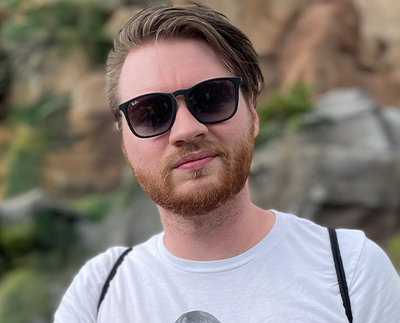Sam Dietrich Drives Innovation Through AI and Partnerships
Sam Dietrich took his interest in innovation to university for engineering after working for a local waste hauler at a young age. The product of that was a go-getter set to use new and exciting technology in the waste industry.

Sam Dietrich took his interest in innovation to university for engineering after working for a local waste hauler at a young age. The product of that was a go-getter set to use new and exciting technology in the waste industry.
Dietrich is the CEO & co-founder of Prairie Robotics, a company specializing in contamination identification through automated waste audits. This innovative technology is installed on recycling collection trucks through cameras, GPS, and AI-enabled computers. This allows Cities to scale traditional “Lid-Lift” or “Feet on the Street” campaigns City wide without any additional labor or time. In addition to the A.I., Prairie Robotics partners with each City to design custom education that’s personalized for each household. Due to the sheer amount of data, they’ve collected through their large scale education campaigns they’ve established a number of best practices to drive behavior change.
This continued push for innovation in the waste industry earned Dietrich a much-deserved 40 Under 40 award. Waste360 was able to have a quick chat with Dietrich on innovation in the waste industry, the success of Prairie Robotics, and what’s next for him and the team.
When talking about innovation and specifically, how to innovate, Dietrich sites that it always starts with solving a real problem.
“We’ve got a lot of great clients who are able to use our platform to reduce contamination and have a lot of great ideas on additional use cases or benefits. And as we source feedback from a number of groups, usually a common theme rises to the top,” said Dietrich. “And that’s what we then turn our focus to and something we really pride ourselves on.”
Dietrich says the residents that Prairie Robotics serve have had largely positive reactions to the service.
“Its [community reception to reports] been largely positive, Waste is the only utility that you don’t get regular feedback … if you look at electricity, water or heating, you get feedback at the end of every month for how much you’ve used and relates to your overall usage. Our focus is on closing the feedback loop. We’ve really worked with every city we’re deploying this in to have a comprehensive press release and media coverage that not only highlights the innovation of this platform but the importance of clean recycling [and] it’s helped increase buy-in,” said Dietrich.
As AI continues to boom in every industry, and only seemingly scratching the surface in some areas, waste is quickly following suit. When asked how AI may help shape the waste industry, Dietrich says he sees several opportunities for AI in the waste industry including through the power of collaboration.
“We really see partnerships as a means of driving further innovation in the industry”,” said Dietrich. “We’ve got a number of active partnerships and integrations in place today. One of them that a lot of our clients love is our partnership with ReCollect … by pairing that [ReCollect and its software] with what we’re seeing on the trucks we’ve installed equipment on, we’re able send a text message, email, or app notification to a household in addition to our standard personalized postcard.
While one person in a household may bring in the mail another might be the one signed up for the text message reminders so by pairing these, we’re really driving a conversation over the dinner table about what is and isn’t recyclebale. So, I think that’s an example of a really great partnership that just drives better value together than independently.
We’re seeing lot of innovation in across the value chain we’re most excited about for the future is where a number of these systems are going to become further linked, increasing traceability options and just leading us to a more circular world.”
About the Author
You May Also Like




.png?width=300&auto=webp&quality=80&disable=upscale)